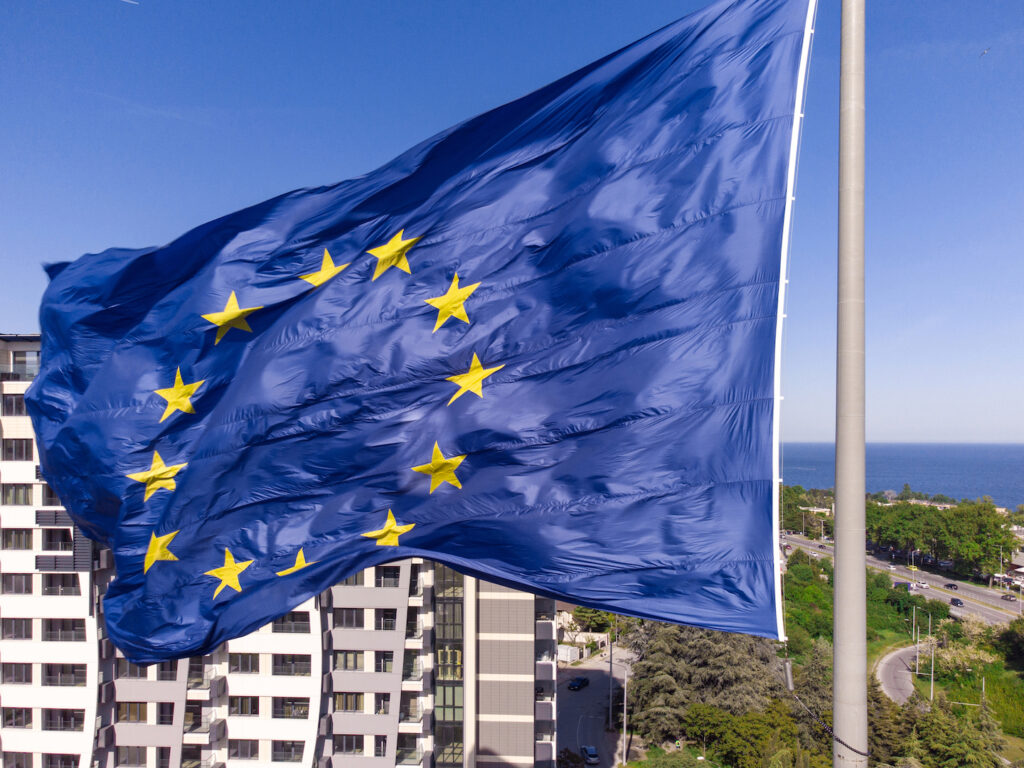For sales and marketing leaders, the sea of data available on user behavior, preferences, and more is invaluable—offering insights, driving strategies, and indicating trends in the market. But as the saying goes, with great power comes great responsibility. Major data privacy laws passed in recent years, including the General Data Protection Regulation (GDPR) in Europe and the California Consumer Privacy Act (CCPA) in California, have set new standards, emphasizing the increasing importance of consumer data protection. But what about how the CCPA, GDPR, and Google Analytics 4 relate?
With the emergence of Google Analytics 4 (GA4) come new questions around how the web analytics platform handles data privacy. The latest iteration of Google Analytics has been touted as more than just a technical upgrade, as the company has presented GA4 as their answer to the global call for stricter data privacy measures. But how compliant is GA4? Let’s take a look.
GDPR and Google Analytics 4 Compliance
Let’s take a closer look at how GDPR and Google Analytics 4 are connected, and how GA4 specifically addresses GDPR’s data privacy requirements.
1. Consent Modes: User-Centric Choices
Consent is at the heart of GDPR, which mandates that users should have control over which data they’re willing to share. GA4 has attempted to address this principle with its refined consent modes. When a user decides to opt-out of certain data collection categories, GA4 can adjust its tracking behavior based on these user consents. This not only ensures that user preferences are respected but also means that the data you collect is more aligned with user comfort, thus helping improve its quality and trustworthiness.
2. Data Deletion Requests: Streamlining User Rights
One of the cornerstones of GDPR is the right to erasure, or having one’s data deleted. To address this, GA4 has simplified the process for data deletion requests. Now, when users request to have their data deleted, you can easily comply without jumping through endless hoops. It’s a win-win: users get more control over their data, and you gain their trust.
3. IP Anonymization: Safety First
Protecting user identity remains a main focus of GDPR, and GA4 is no exception. IP addresses can potentially reveal more about users than one might assume. Recognizing this, GA4 has incorporated IP anonymization features. This ensures that while you gather meaningful data about user interactions and preferences, you’re not inadvertently compromising their identity.
4. Event-Based Tracking: A Shift Away from Cookies
Cookies are officially a thing of the past—almost. While these digital markers have been incredibly useful for tracking user behavior in the past, they’ve also raised significant privacy concerns. GA4 makes a monumental shift by emphasizing event-based tracking in a move to reduce its reliance on cookies. This approach not only aligns better with GDPR principles but also helps customers avoid the challenges that arise from browsers increasingly blocking third-party cookies.
What About CCPA Compliance?

The California Consumer Privacy Act (CCPA) made waves as one of America’s most comprehensive state data privacy laws. Its provisions have forced businesses to adjust their data collection practices and work to more actively protect consumer data in the digital world. As a sales and marketing leader, though, ensuring that you remain in compliance while continuing to gather actionable insights is critical. How can you accomplish this with GA4? Here’s how GA4 addresses the benchmarks set by CCPA.
1. Addressing the “Do Not Sell My Personal Information” Mandate
One of CCPA’s most distinct mandates is the “Do Not Sell My Personal Information” requirement, giving consumers the right to opt out of the sale of their personal data. GA4 responds to this by providing features that allow website operators to honor these requests. When a user chooses to exercise this right, data collection and sharing within GA4 can be adjusted accordingly. This ensures that the marketing strategies you deploy don’t inadvertently cross the line, both respecting user choices and staying compliant.
2. Data Retention Settings: Adhering to Data Minimization Principles
CCPA emphasizes the importance of retaining data only as long as it’s necessary, echoing the broader principle of data minimization. GA4 has introduced enhanced data retention settings, enabling businesses to specify how long event data is stored before being automatically deleted. This proactive approach ensures that your business doesn’t store unnecessary user data, striking a balance between insightful analytics and user privacy.
3. Enhanced User Identification: Streamlining Data Access and Deletion Requests
Under CCPA, consumers have the right to access their data and request deletion. This calls for a system that can accurately identify user data when such requests are made. GA4 has risen to this challenge with improved user identification mechanisms. Now, when a user makes a data access or deletion request, you can more efficiently pinpoint their data, ensuring timely and accurate compliance. This demonstrates GA4’s commitment not just to sophisticated tracking, but also to the ethical handling of that data.
Additional Features of GA4: Prioritizing Data Privacy in the Modern Era
Beyond its compliance with GDPR and CCPA, GA4 introduces a suite of features that go even further to uphold the principles of data protection. These include:
1. Enhanced Measurement Protocol: Securely Paving the Data Highway
While the internet’s interconnectedness enables a seamless exchange of data, it also poses risks to data integrity during transfers. Recognizing this, GA4’s Enhanced Measurement Protocol acts as a fortified bridge—ensuring data being transferred between your website and Google Analytics is done securely, safeguarding against potential breaches or mishandlings. For marketers, this means the insights you glean are collected responsibly.
2. Cross-Site Tracking Limitations: Honoring the Boundaries
In our quest for comprehensive data, cross-site tracking can be tempting. But users today value their autonomy in online navigation. Respecting this, GA4 has introduced limitations to cross-site tracking. By doing so, it upholds a user’s preference to not be followed across different websites, ensuring their online journey remains private, and their trust in your brand remains intact.
3. Embracing a New Era: Cookie-less Tracking and the User-Centric Model
Cookies have long been the backbone of online tracking, but with rising privacy concerns, their reign is being challenged. GA4 is at the forefront of this change, pioneering a shift towards a user-centric model. By relying less on cookies and more on event-based metrics, GA4 captures user interactions in a way that’s less invasive yet still deeply insightful. It’s a nod to the evolving digital landscape, where understanding users doesn’t equate to infringing on their privacy.
What About the New EU-U.S. Data Privacy Framework?

When GA4 was first released, it wasn’t deemed legal in Europe due to the GDPR’s strict regulations. Thankfully, with the European Commission’s recent approval of the new EU-U.S. Data Privacy Framework, also known as the Trans-Atlantic Data Privacy Framework, GA4 is now legal in Europe due to the assurance of safe data flow between the EU and U.S. and the U.S. government’s agreement to limit government surveillance of EU citizens’ data. For more about the new framework and how it impacts your business, see our guide here.
Implications for Sales and Marketing Leaders: Navigating the GA4 Privacy Landscape
The intersection of data analytics and data privacy can sometimes feel like navigating a maze. On one hand, data drives our strategies, fuels our campaigns, and helps us make informed decisions. On the other, respecting user privacy is non-negotiable. Here are some pointers for keeping data privacy front and center when using GA4:
- Education is Key. Continuously train your teams on the nuances of GA4. Familiarity will breed confidence in using its features in a compliant way.
- Test and Learn. Before a full-fledged transition, run pilot campaigns or projects to understand the new data sets and insights that GA4 offers.
- Stay Updated. The data privacy landscape is ever-evolving. Regularly update your knowledge on emerging regulations and best practices in data privacy and analytics.
As business leaders, it’s your responsibility to champion both data intelligence and user trust, and with GA4, you’re well-equipped to do just that.
Data Privacy and the Way Forward with GA4
The narrative of data privacy has never been more pertinent. With GA4’s features better tailored for data privacy, the tool helps companies strike a delicate balance between insightful marketing and respect for user data. As legislation around data security and privacy continues to evolve, keep an eye on best practices and changing standards to ensure your team stays on top of the data privacy landscape.
